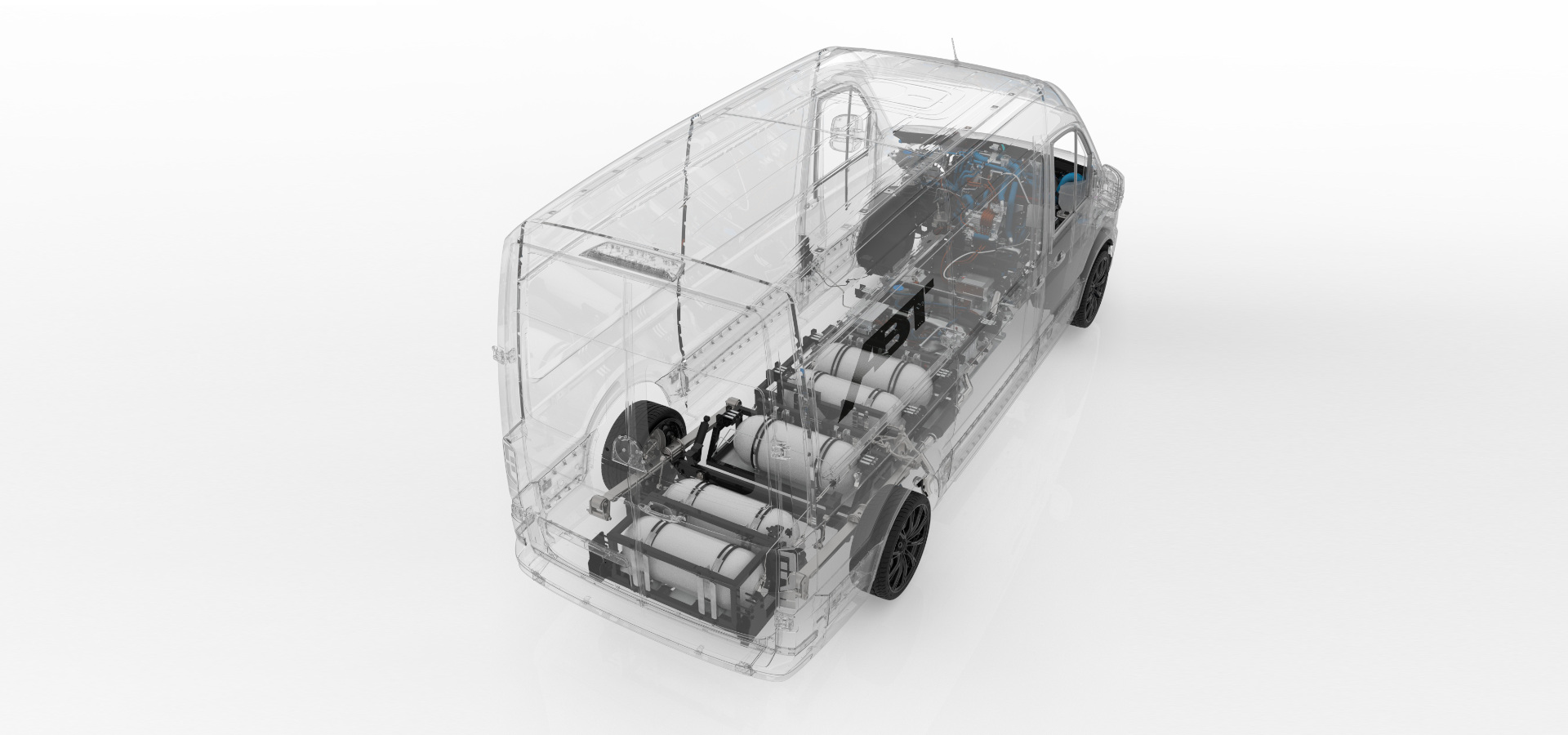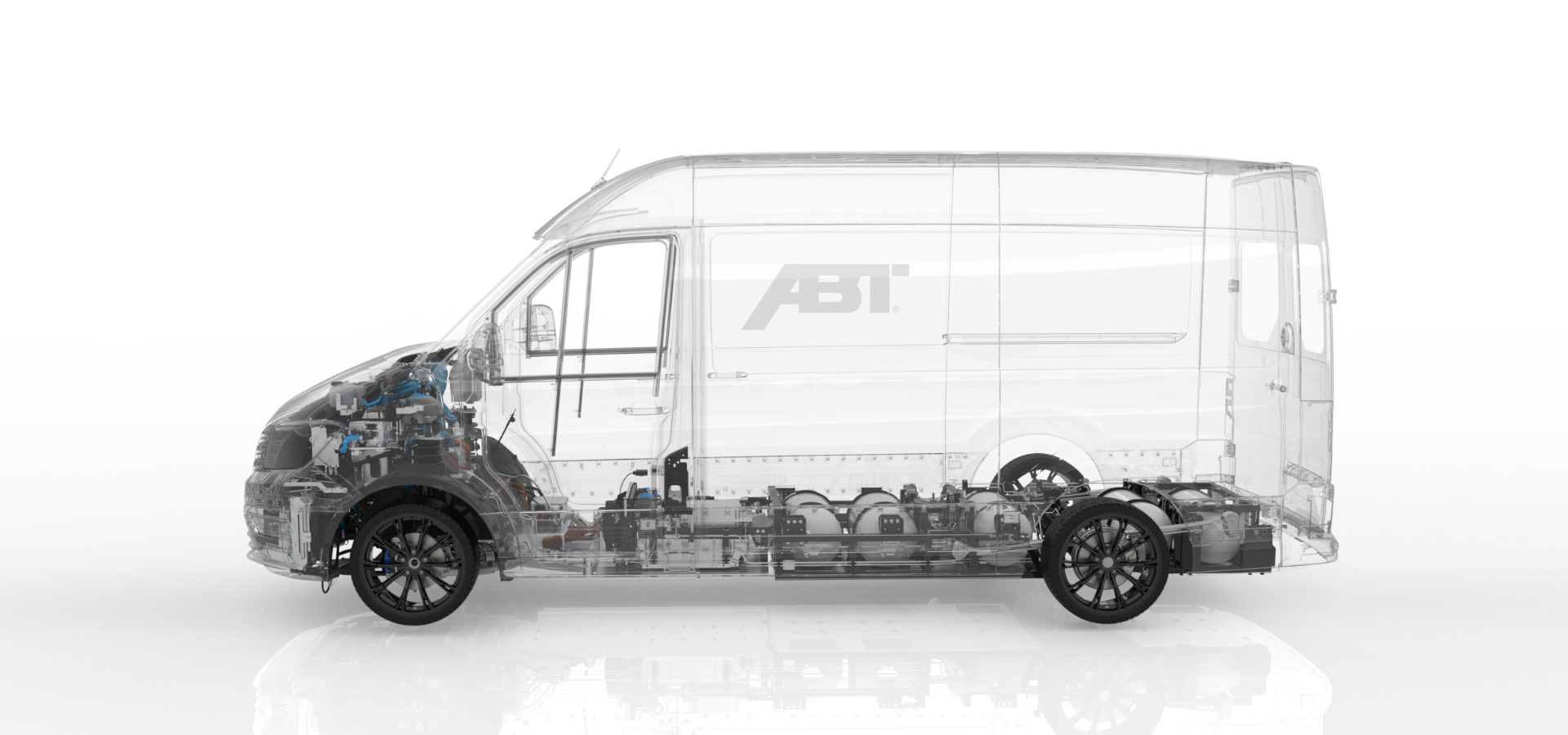SUBSTANTIALLY MORE RANGE THANKS TO HYDROGEN
Battery-based drives are becoming increasingly popular due to their local emission-free nature. However, they are reaching their limits, particularly regarding range and charging times. Particularly in corporate sectors such as logistics, where vehicles travel several hundred kilometers a day, practical alternatives are needed. One of these alternatives is the fuel cell.
As a flexible and agile partner of car manufacturers, we have gained a lot of experience based on the integration of fuel cell drives during the realization of several large projects in the last three years. Building on this experience, our engineers then retrofitted three series-produced e-transporters with this technology as demonstrator vehicles.
Due to the resounding success - the range increased by several 100 km and is thus on a par with the diesel model in terms of range and refueling time - and the enormous demand, we are now starting series development for the Sprinter/Crafter class together with our partners.

In the development of fuel cell drives, we take on the role of a technology driver and expert for the conception and implementation of market-ready small series for large customers.
Our range of services covers the entire vehicle conversion process, from procurement, development and construction through to registration. The result is a finished vehicle at manufacturer level, which will be sold and supported in the future via our broad trade and aftersales network.
- Refueling of two to seven storage tanks in a few minutes:
While battery-powered electric vehicles must be charged over a long period, refueling with hydrogen takes just a few minutes, as with conventional drives. - Enormous range increase:
Due to the energy density typical of hydrogen, a range can be realized that is not even realizable in the premium segment of electrically powered passenger cars. - Great potential for niche applications:
Especially for vehicle fleets that cover many kilometers a day, such as in the logistics sector, battery-based drives are difficult to map. But it is precisely here that a low-CO2 or CO2-free drive is often particularly interesting.
